Learn more about our appointment options, second opinions, and resources that are at your disposal.

Cellular Therapy Program
About the Cellular Therapy Program
AHN’s Cellular Therapy Program focuses on using cells as therapeutic agents to treat disease. Cellular therapy involves using living cells as a form of medicine. Instead of relying on drugs or surgery alone, cellular therapies harness the power of cells to repair, replace, or enhance the function of damaged tissues and organs, or to fight diseases including:
- Leukemia: Acute and chronic forms of leukemia.
- Lymphoma: Hodgkin's and non-Hodgkin's lymphoma.
- Multiple Myeloma: A cancer of plasma cells.
- Myelodysplastic Syndromes (MDS): A group of disorders in which the bone marrow does not produce enough healthy blood cells.
- Amyloidosis: A rare disease that occurs when an abnormal protein builds up in your organs and interferes with their normal function.
-
Appointments
Cellular Therapy Program
Our program provides seamless collection, processing, and administration of cells to patients to restore or enhance immune function, replace damaged cells, or target cancer cells.
The AHN Cellular Therapy Program includes experimental in-house production of Chimeric Antigen Receptor T-Cell Therapy (CAR T-cells), Tumor-Infiltrating Lymphocyte (TIL) cells, and, in the near future, cancer vaccines. We utilize commercial CAR T-cell and TIL cell products for the treatment of B-cell lymphoma, B-ALL, and melanoma (for TIL).
Treating using cell-based therapy
Our Cellular Therapy Program offers a range of advanced treatment options using a variety of cell transplant and therapy treatments. This innovative practice uses the power of cells to improve health outcomes for a variety of diseases. AHN’s Cellular Therapy Program focuses on identifying a patient’s unique needs and creating tailored therapies.
Hematopoietic Stem Cell Transplantation (HSCT)
Hematopoietic Stem Cell Transplantation, often called a bone marrow transplant, is a procedure to replace damaged or destroyed blood-forming stem cells with healthy ones. These stem cells are found in the bone marrow and are responsible for producing all types of blood cells (red blood cells, white blood cells, and platelets). HSCT is used in the following ways:
- Autologous HSCT: Uses the patient's own stem cells, collected and then reinfused after high-dose chemotherapy or radiation to treat cancers like lymphoma, myeloma, and some autoimmune diseases.
- Allogeneic HSCT: Uses stem cells from a matched donor (related or unrelated) to replace the patient's diseased bone marrow. This is used for leukemia, myelodysplastic syndromes (MDS), and other blood disorders.
- Haploidentical HSCT: A type of allogeneic transplant where the donor is a half-matched relative (often a parent, sibling, or child). This expands the donor pool for patients who lack a fully matched donor.
Chimeric Antigen Receptor T-Cell Therapy (CAR T-Cell Therapy)
This therapy is a cutting-edge form of immunotherapy that harnesses the power of your own immune system to fight cancer. It involves genetically modifying T cells (a type of white blood cell that plays a critical role in immune responses) to express a special receptor called a CAR, enabling them to specifically recognize and destroy cancer cells. CAR T-cell therapy is not a first-line treatment and is typically considered for patients with specific types of blood cancers (certain lymphomas, leukemias, and multiple myeloma) that have relapsed or are refractory (resistant) to standard treatments. Patients undergo thorough screening to ensure they are eligible for the therapy and can tolerate the potential side effects.
Tumor Infiltrating Lymphocytes (TIL Therapy)
Tumor-Infiltrating Lymphocyte therapy or TIL therapy is a type of adoptive cell therapy that utilizes the patient's own immune cells to target and destroy cancer cells. Unlike CAR T-cell therapy, which involves genetically engineering T-cells to recognize a specific target, TIL therapy relies on naturally occurring T-cells that have already infiltrated the tumor microenvironment and are capable of recognizing tumor-associated antigens. TIL therapy has been approved for the treatment of advanced melanoma that has not responded to other treatments. This is where TIL therapy has shown the most success and is the most well-established application. Research on how to use TIL in other cancers is ongoing.
Clinical trials
The Cellular Therapy Program participates in clinical trials to evaluate new forms of cellular therapy and to improve existing treatments. This rapidly evolving research space is working to extend treatment to autoimmune diseases such as myasthenia gravis and lupus, as well as other solid tumors such as breast cancer and bowel cancer. Additionally, it aims to improve therapy that already is FDA-approved, such as CAR T-cells for lymphoma and myeloma. These trials offer access to cutting-edge therapies that are not yet widely available.
Cellular therapy specialists
AHN’s cellular therapy specialists are focused on advancing cellular therapy abilities through advanced research. These health care providers have advanced degrees in the areas of immunogenetics, biological sciences, microbiology, immunology, and medicine. This, plus their comprehensive and compassionate care approach, delivers breakthrough treatment options for AHN patients.
Cellular Therapy Program
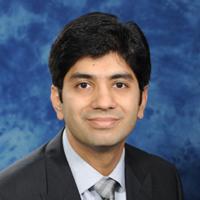
Cellular Therapy Program Lead

Hematologist
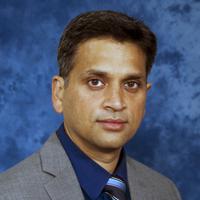
Hematologist

Hematologist
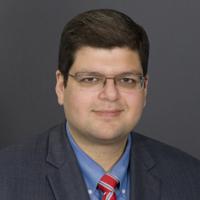
Hematologist
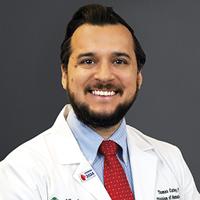
Hematologist
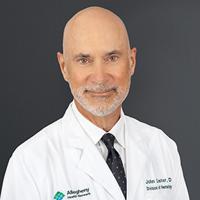
Hematologist
How to get care
If you want to be tested for or have been diagnosed with blood cancer or an allied disorder, we’re here to help.
Call our schedulers at 412-578-4484 or the Cancer HOPE line at (412) 578-HOPE 412-578-4673 to schedule an appointment.
Second opinions
If you have cancer, you have a team of oncology specialists ready to review your medical records and offer you a second opinion. After completing their review, they’ll talk with you about your goals to determine a course of treatment that’s right for you. To get started, fill out our Second Opinion Request form. A nurse navigator will contact you within the next 24 to 48 hours to discuss next steps and schedule.
Schedule a screening
AHN holds weekly and monthly cancer screening clinics throughout western Pennsylvania. We screen for seven different types of cancer, including skin.
Clinical trials and research
Our Cellular Therapy Program is always at the forefront of cellular research. We are currently approved to manufacture CAR T-cells in the laboratory for clinical trial and soon will begin clinical trials that focus on TIL.
Cancer clinical trials and research
The AHN Cancer Institute is a pioneer in cancer research and participates in clinical trials that are open for patients who qualify and wish to participate. Patients are screened for consideration with ongoing clinical trials at every stage of their treatment.
What is a clinical trial?
Clinical trials are studies that try to answer questions about new ways to treat cancer with cells, medications, radiation, and surgical techniques. Previous trials have shown how new methods of treatment improve survival and quality of life and reduce the risk of cancer returning.
You participate in a clinical trial only if you volunteer to do so and meet criteria for inclusion in the study, and you can stop participating in a trial at any time.
Who can join a clinical trial?
The plan for the trial, called a protocol, explains what the trial will do and how the study will be done. Based on the questions the research is trying to answer, each clinical trial protocol outlines specific criteria necessary to be eligible to participate in the trial.
Common criteria for entering a trial are:
- Having a certain type or stage of cancer.
- Having received a certain kind of therapy in the past.
- Being in a certain age group.
Federal rules help ensure that clinical trials are run in an ethical manner, with your rights and safety protected. It’s to ensure that you’re not put at increased risk by participating in the trial, and that the results of the study are accurate and meaningful.
Currently active clinical trials
If you would like to participate in a clinical trial and help our innovative team discover groundbreaking cancer solutions, ask your doctor if you’re eligible to participate in one. Find currently active clinical trials that are open for participation.
Refer your patient to an AHN specialist
There are two ways for medical professionals, who are not a part of Allegheny Health Network, to refer their patients to an AHN specialist and request their first appointment. You can:
- Call (412) DOCTORS 412-362-8677.
- Go to Find Care to find the right AHN specialist and the most convenient location. Then refer your patient, provide relevant patient details, and request an appointment directly from the doctor's profile.
For more information about referring your patient to an AHN specialist, read the Independent Physician Referral FAQs.
After referring your patient
Once your patient is receiving care from an AHN specialist, you can view their test results, see their treatment plan, follow their treatment progress, and collaborate with our team using the EpicCare® Link™ platform.
If you are new to EpicCare Link, or need to request your own EpicCare Link account, read: EpicCare Link for Patient Follow-up, for user instructions and new account request forms.
When EpicCare Link is not an option for a patient's AHN medical records
If you can’t access your patient's AHN test results through the EpicCare Link platform, your patient will need to complete and submit the correct AHN Medical Records Release form, based on their state of residency. Support your patient’s request by downloading the correct medical records release form for them:
EpicCare® is a registered trademark of Epic Systems Corporation and used with permission.
EpicCare® Link™ is a trademark of Epic Systems Corporation and used with permission.

